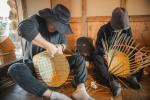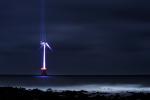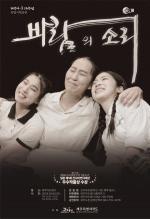- Dispatch 2 from the 6th Jeju Forum for Peace & Prosperity, May 27-29
[May 27, 9 p.m.]
The Jeju Weekly currently has reporters at the forum venue covering a wide range of talks, sessions and panels. We will be posting brief reports on our Web site throughout the weekend, and then compile them into a comprehensive report for Issue 51 of The Weekly as well as in our Chinese edition. -- Ed.
The 6th Jeju Forum for Peace and Prosperity, hosted at the Haevichi Hotel & Resort in Pyoseon, Seogwipo City, began on May 27 at 2 p.m. with five concurrent presentations of 16 scheduled for the day. A total 63 conferences will occur over the three-day period.
The forum, organized by several national and provincial organizations, will be conducted under the theme of “New Asia for Peace and Prosperity,” with the purpose of expanding previous years’ topics of discussion from specifically concerning the notion of peace to subject matters that directly affect its establishment like economics, environmental concerns, and cultural issues.
This expansion highlights great changes to the forum. Established in 2001 to continue the efforts of the June 2000 North-South Summit, the Jeju Peace Forum was originally a biennial event, but was changed this year for the purpose of creating a globally recognized forum where ideas are continually discussed and worked towards. Jeju Peace Foundation President Han Tae Kyu has said that the year between forums resulted in a lag in implementing the ideas and proposals discussed during the conference and now that it has been expanded to a yearly event it will help to foster multilateral communication in Asia.
Some of the topics to be discussed on Friday, May 27, are International Cooperation for Peaceful and Ecological Conservation and Utilization of DMZ, The Korean Wave (Hallyu) and Cultural Fusion in East Asia: Toward an East Asian Cultural Community, World Natural Heritage and Environmental Conservation, among other issues.
During the final set of conferences on the first day of The 6th Jeju Forum for Peace and Prosperity, the presentation “World Natural Heritage and Environmental Conservation,” moderated by Yoo Jay Kun, president of the Korea National Federation of UNESCO Clubs and Associations, outlined the history, intent, goals and future of world Geoparks.
The first speaker, Guy Martini, an international expert on Geoparks, began his presentation by defining the term Geopark, which he believes has undergone a semantic debate since it was first introduced 10 years ago.
“Geopark is not geology, geology is only one part of Geopark,” said Martini continuing that the prefix “geo” comes from its Greek meaning of Earth, encompassing everything that the word entails, including non-living things such as rocks, as well as its human inhabitants.
He gave a detailed etymology of the word Geopark, outlining that it also includes history and culture for a “Geopark does not work as a site, it works as a territory with its people,” he said.
Martini explained that to gain Geopark status, environmental, historical, and social criteria must be met, for it not only conserves geology but also heritage.
Geopark is not a “geology theme park, not a geological open museum,” Martini said.
The main theme of the conference was that the people who inhabit a Geopark are just as fundamental to its status as the nature in which they inhabit. This means there has to be an infrastructure in place that allows them to be economically solvent while at the same time being sustainably developed. Recreational activities and environmental tourism were two options Martini proposed.
Ibrahim Komoo, the second speaker of the talk and co-chair of the Asia Pacific a Geoparks Network as well as a professor at the University Kebangsaan Malaysia, stated that it is important to emphasize the cultural, historical and non-living aspects of a Geopark. “If these [aspects] are included in the geoheritage we can really sell the idea of the Geopark.”
The reason why it is important to inform the public and to have them interested in Geopark status is because the status is dependent upon local citizens for its success. Due to the goals of a Geopark, it also strives to benefit the public economically and culturally. Ultimately, Komoo said, Geopark is about the sustainable development of “regions of poor or unproductive economic activities.”
Its success is not solely community based though, he said, for without national recognition of the site’s importance it will not qualify as a Geopark.
This was a primary concern for the third and final speaker Lee Yong Il, professor for the School of Earth and Environmental Sciences at Seoul National University, who said that the responsibilities and purposes or a Geopark are not well known in Korea. “…the recognition is very low in [Korea], that is because the people have a very vague idea,” about what a Geopark is.
Lee said to fix this problem there needs to be more communication with the general public through hosting lectures, providing more literature, having booths at concerned museums, and offering guided nature tours among other suggestions. This, he said, would build up the regions “self-esteem” concerning their status and encourage them to participate in achieving its goals.
The exchange of information between universities and interested institutions is also required, said Lee, saying that the establishment of a Korea network is necessary, and from there an Asian network, so as to share best practices and conjointly promote on another.
This, he believes, will ultimately help for other areas of Jeju Island to be designated as geoheritage sites and add to the size of the geopark.
“In the near future, or later future, we will be able to expand this so other areas will be listed, so all of Jeju Island will be listed,” said Lee.
Darryl Coote darrylcoote@jejuweekly.com
<저작권자 © 제주위클리 무단전재 및 재배포금지>








